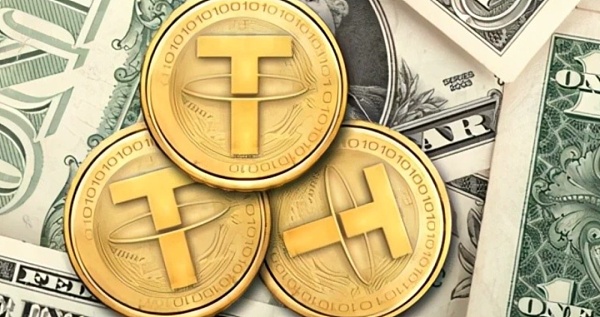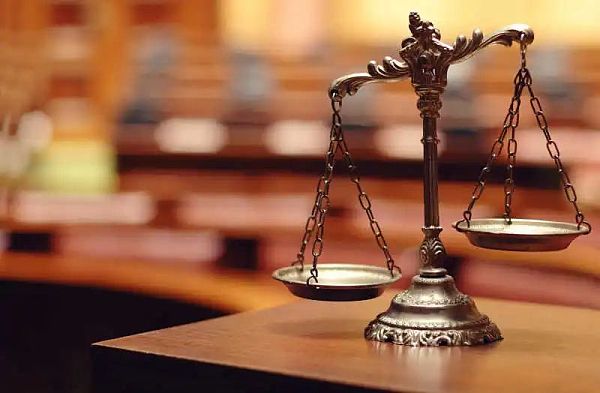Introduction
For a long time, due to Hong Kong’s open business environment and relaxed The customs clearance policy has attracted many mainland people to do business in Hong Kong. Since the Hong Kong government issued the "Policy Declaration" in October 2022, it has triggered a wave of "fever" among mainland Web3 people to come to Hong Kong. However, many mainland people are concerned about a very important issue: Will it constitute an illegal crime within the country if mainlanders go to Hong Kong to conduct exchange business between USDT and Hong Kong dollars or US dollars? "Illegal trading of foreign exchange" in business crimes? This article will start from different scenarios, combine the elements of illegal business crimes, protection of legal interests, foreign exchange management system, etc., to demonstrate whether mainlanders doing exchange business between USDT and Hong Kong dollars/US dollars and other foreign currencies in Hong Kong will violate China's The issue of domestic legal high-voltage lines.

1. Analysis based on different scenarios: Does it violate domestic laws for mainlanders to conduct foreign currency-to-foreign currency or foreign currency-to-USDT business in Hong Kong?
(1) From the perspective of the "Foreign Exchange Administration Regulations" and related laws and regulations: USDT and Hong Kong dollar/US dollar exchange In the process, if RMB is not touched, it seems difficult to be held accountable by domestic laws.
my country's foreign exchange management has always adhered to the strict attitude of "centralized management and unified operation", and " The "illegal trading of foreign exchange" stipulated in Article 225 of the Criminal Law of the People's Republic of China, the crime of illegal business operations, requires that in addition to this, it must meet the standards of serious circumstances and have a profit-making purpose. Combined with the background of the promulgation of the "Foreign Exchange Administration Regulations", it is not difficult to find that the core purpose of its formulation is to strengthen the management of the overseas circulation and transactions of RMB, especially in the context of economic globalization, and to protect the stability of the RMB in the international market. Value and trading position. This purpose is also consistent with the legal interests protected by the "illegal trading of foreign exchange" in the crime of illegal business operations - the stability of the RMB currency value and the market economic order.
Article 45 of the "Foreign Exchange Administration Regulations of the People's Republic of China" clearly lists "private buying and selling of foreign exchange, disguised buying and selling of foreign exchange, or reselling of foreign exchange" as subject to administrative penalties. Until criminal liability is investigated. Article 4, paragraph 1, of the National People’s Congress Standing Committee’s “Decision on Punishing the Crimes of Fraudulent Purchase of Foreign Exchange, Foreign Exchange Evasion and Illegal Foreign Exchange Trading” stipulates: “Anyone who illegally buys or sells foreign exchange outside the trading venues prescribed by the state and disrupts market order, and the circumstances are serious, shall be punished in accordance with Article 225 of the Criminal Law provides for conviction and punishment." So, how should we understand the "disguised buying and selling of foreign exchange"? Using virtual currency as a medium to "bridge" foreign exchange transactions with the RMB, is it a disguised purchase or sale of foreign exchange?
Understanding and Point (2) of Article 3 of "Apply" (hereinafter referred to as "Understanding and Applicability"), "Disguised buying and selling of foreign exchange refers to a form of repayment in foreign exchange that is not a direct sale between RMB and foreign exchange. RMB or the act of repaying foreign exchange with RMB, and using foreign exchange and RMB to swap to achieve currency value conversion." From this point of view, the use of virtual currency exchange behavior involving RMB is likely to be regarded as a typical disguised form. The behavior of buying and selling foreign exchange. However, whether it is buying and selling foreign exchange directly or in disguised form, it is required that at least one link in the entire process comes into contact with the RMB. From this perspective, if you go to Hong Kong to do OTC, you will not touch the RMB at all in the process of USDT and foreign currency exchange. It seems that It is difficult to constitute "disguised buying and selling of foreign exchange". But is this behavior completely safe?

We believe that in order to explore whether mainlanders going to Hong Kong to do OTC business may be suspected of constituting the crime of illegal business operations in my country, we must conduct a traceability analysis in conjunction with China's laws and regulations related to foreign administration, the legal interests protected by the crime of illegal business operations, etc. .
Article 45 of the Foreign Exchange Management Regulations promulgated by the State Council in January 1996 defines "private buying and selling of foreign exchange, disguised buying and selling of foreign exchange, These four behaviors, "buying and selling foreign exchange and illegally introducing and buying and selling foreign exchange", are stipulated as illegal foreign exchange activities. Although the Regulations stipulate that "any case that constitutes a crime shall be investigated for criminal responsibility in accordance with the law," it does not clearly stipulate the specific basis for conviction and punishment. Therefore, this provision is only an indicative provision. Afterwards, the Supreme People's Court promulgated the Interpretation on Several Issues Concerning the Specific Application of Law in the Trial of Criminal Cases of Fraudulent Purchase of Foreign Exchange and Illegal Purchase and Sale of Foreign Exchange (hereinafter referred to as the "Interpretation") in August 1998, in which Article 3 It stipulates: “Whoever buys or sells foreign exchange outside designated foreign exchange banks and the China Foreign Exchange Trading Center and its sub-centers, disrupts the order of the financial market, and falls under any of the following circumstances, shall be punished in accordance with Article 225, Item (3) (now Item (4)) of the Criminal Law ) provides for conviction and punishment: (1) Illegal trading of foreign exchange of more than 200,000 US dollars; (2) Illegal income of more than 50,000 yuan." This is the first time that the judicial interpretation stipulates that illegal trading of foreign exchange should be convicted and sentenced according to the crime of illegal business operations. Shortly thereafter, Article 4 of the Decision issued by the Standing Committee of the National People’s Congress stipulates: “Anyone who illegally buys or sells foreign exchange outside the trading venues prescribed by the state and disrupts market order, and the circumstances are serious, shall be punished in accordance with Article 225 of the Criminal Law. Providing penalties for conviction..." This provision basically reaffirms the aforementioned judicial interpretation.
Through the above laws and regulations, it is not difficult to see that: the legal interest to be protected in the crime of illegal business "illegal trading of foreign exchange" is China's foreign exchange management system and the stability of the market order . Therefore, if OTC behavior occurs within the country and involves RMB, there is of course a risk of criminal prosecution. However, if you go to Hong Kong to do OTC and use foreign currency, is it still considered "disguised buying and selling of foreign exchange"? We believe: This should be treated differently according to different scenarios. Let us conduct a specific analysis based on the following two scenarios:

(2) Mainland residents in Hong Kong exchange foreign currency for foreign currency Or use foreign currency to conduct USDT transactions.
Mainland residents in Hong Kong exchange foreign currency for foreign currency or use foreign currency to conduct USDT transactions. If the actor’s behavior of obtaining foreign currency has nothing to do with RMB, The risk of breaking the law is naturally extremely low. However, if the perpetrator’s foreign currency is obtained by exchanging RMB, it needs to be discussed on a case-by-case basis:
1. Through legal channels RMB is converted into foreign currencies, and then converted into other foreign currencies or virtual currency transactions are conducted in Hong Kong.
First of all, if you separate the two behaviors before and after, there is no problem with both. However, it should be noted that if these two acts are determined by the case-handling agency as a continuous act, there is a risk of being held criminally responsible. Because the case-handling agency may think that the previous behavior of "exchanging RMB for foreign currency through legal channels" is to implement the subsequent "exchange the exchanged foreign currency into another foreign currency" or The behavior of "using the exchanged foreign currency to conduct virtual currency transactions to obtain another foreign currency" is a relationship between means and ends. At this time, the foreign currency legally exchanged in the middle is equivalent to a medium, which is used by the perpetrator as a cover to circumvent my country's foreign exchange supervision. In essence, it violates the legal interests protected by the crime of illegal business operations, thereby realizing the perpetrator's"RMB ——Foreign currency"'s exchange purpose may be considered by the case-handling agency as covering an illegal purpose by legal means, and will be investigated.
However, having said that, in actual operations, due to various problems involving overseas factors, virtual currency transactions, etc., domestic case handling agencies often have problems in collecting evidence. It is a huge difficulty, and jurisdiction is also an unavoidable issue. Therefore, the action is likely to be unable to proceed due to insufficient evidence or difficulty in jurisdiction.
2. Exchange RMB for foreign currency through illegal channels, and then exchange it for other foreign currencies overseas or conduct virtual currency transactions.
In this case, since the former act has violated the relevant laws of our country, the latter act will be converted into It actually doesn’t matter whether you are trading other foreign currencies or virtual currencies. The criminal risk of the overall behavior is naturally far greater than the previous situation. At this time, if the perpetrator's "illegal" exchange of RMB into foreign currency is carried out in an overseas country or region where the exchange business has been legalized, and after being legally approved, he may still struggle on the grounds that it is under overseas jurisdiction; However, if the illegal exchange of foreign currency occurs within the country, our country's criminal law will be able to control the perpetrator no matter where he travels.

(3) Scenarios where mainlanders exchange foreign currencies for foreign currencies or use foreign currencies for USDT transactions online in China.
In order to exchange foreign currency for foreign currency or exchange foreign currency for USDT, Chinese people in China often choose to "tamper with mainland IP" by "circuiting the wall" The method of "purchasing overseas vest status" is to complete the exchange process online through overseas exchanges. So, will this kind of behavior be held criminally responsible in our country? This depends on whether online behaviors carried out using the Internet can fall within the scope of our country's criminal jurisdiction when suspected of criminal crimes.
After research by our team, we found that the behavior of mainlanders exchanging foreign currency for foreign currency or foreign currency for USDT through the Internet is suspected of a criminal offense and will generally be investigated by the case handling unit. Determined as "crimes committed using computer networks", Article 25 of the Criminal Procedure Law and Articles 16 and 17 of the Ministry of Public Security's Procedural Regulations on the Handling of Criminal Cases by Public Security Organs shall apply and Article 2 and other provisions of the "Opinions on Several Issues Concerning the Application of Criminal Procedural Procedures in Handling Information Network Crime Cases" (Fafa [2022] No. 23) of the Supreme People's Court, the Supreme People's Procuratorate, and the Ministry of Public Security. The basic principle of regional jurisdiction is that the jurisdiction is the primary one and the jurisdiction of the public security organs in the place where the criminal suspect lives is supplementary.
In general, perpetrators who exchange foreign currencies for foreign currencies or exchange foreign currencies for USDT online within the country usually cannot escape domestic jurisdiction. of. Even if the place of crime is not within the country due to the particularity of cybercrime and cannot be subject to the jurisdiction of the domestic public security organs, it will still fall under the jurisdiction of the domestic case-handling agencies because the perpetrator's residence is within the country.
2. If a mainlander’s exchange business between foreign currency and foreign currency/USDT is deemed to be an exchange in Hong Kong, my country’s criminal law can Can't control it?
(1) No contact with RMB at all during the entire behavior.
We believe that if the actor does not involve RMB at all in the entire virtual currency business operation, then from the perspective of criminal law legal interest protection It seems that this behavior should not be included in the regulatory scope of our country's criminal law.
The crime of illegal business operations is stipulated in Chapter 3 of the "Criminal Law" of our country, "Crimes of Undermining the Order of the Socialist Market Economy", and the legal interests it protects have distinctive national characteristics. , fully embodies my country's socialist system and market economic system. The "illegal exchange" behavior regulated by the crime of illegal business operations in my country's "Criminal Law" is mainly to protect the stability of the value of the RMB, our country's sovereign currency.
So, if any link in the entire virtual currency business from buying coins to selling coins does not involve RMB, in fact It will not have any impact on the value of the RMB and will not infringe upon the legal interests to be protected by the crime of illegal business operations. In this case, our country's criminal law is not suitable to have jurisdiction over it.

(2) There is no direct contact with RMB, but the virtual currency used is converted from RMB.
Different from the above situation, in this case, if the entire virtual currency business behavior is regarded as a whole, it is completed indirectly to a certain extent. The exchange rate between RMB and foreign currencies may be affected, which may affect the stability of RMB value. Therefore, when mainlanders go to Hong Kong to do foreign currency exchange/USDT business, they need to pay attention to whether the USDT in their hands was converted from RMB. If it is indeed converted from RMB, it depends further on whether you are subjectively aware of this situation.
Because, if it is only a transaction between foreign currency and USDT, and does not involve RMB, according to my country's current relevant policies and legal regulations, it is just a transaction. This is a normal business behavior and is not suspected of any illegal crime. However, from the perspective of an accomplice, when you subjectively know that someone else’s USDT was converted from RMB and still help them further convert USDT into foreign currency, you are helping others indirectly realize the purpose of buying and selling foreign exchange between RMB and foreign currencies. . Therefore, once the case-handling agency has evidence to prove that you subjectively knew, or should have known, about the client’s USDT exchange from RMB, and the business amount exceeds RMB 5 million, according to the domestic The law meets the standards of "illegal foreign exchange trading" and "serious circumstances", thus constituting the crime of "illegal business operations."
However, if a mainlander does foreign currency exchange/USDT business in Hong Kong, and the customer's U or foreign currency is not exchanged for RMB, or even if it is exchanged for RMB, You subjectively do not know and should not know. In this case, will you still be in violation of domestic laws? We believe that: Judging from the domestic "Foreign Exchange Management Regulations" and other relevant legal provisions, this situation does not affect the balance of payments of RMB, nor does it lead to the outflow of RMB funds. Therefore, in theory, it will not violate domestic regulations. Provisions related to foreign exchange controls. This is just like an overseas money exchange that is engaged in the exchange of Hong Kong dollars, euros, Japanese yen, and US dollars. However, when you do this kind of business overseas, you must also pay attention to the legal regulations of the overseas location and do it locally. For compliance work, if local financial institutions have licensing requirements, they must apply for relevant licenses in a timely manner.
 Edmund
Edmund













